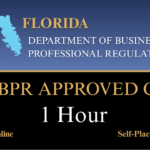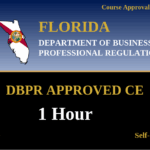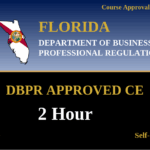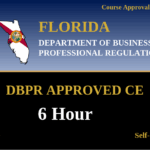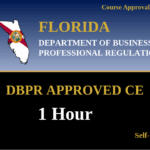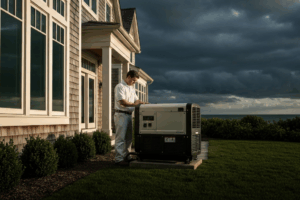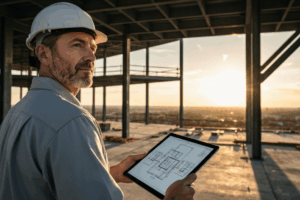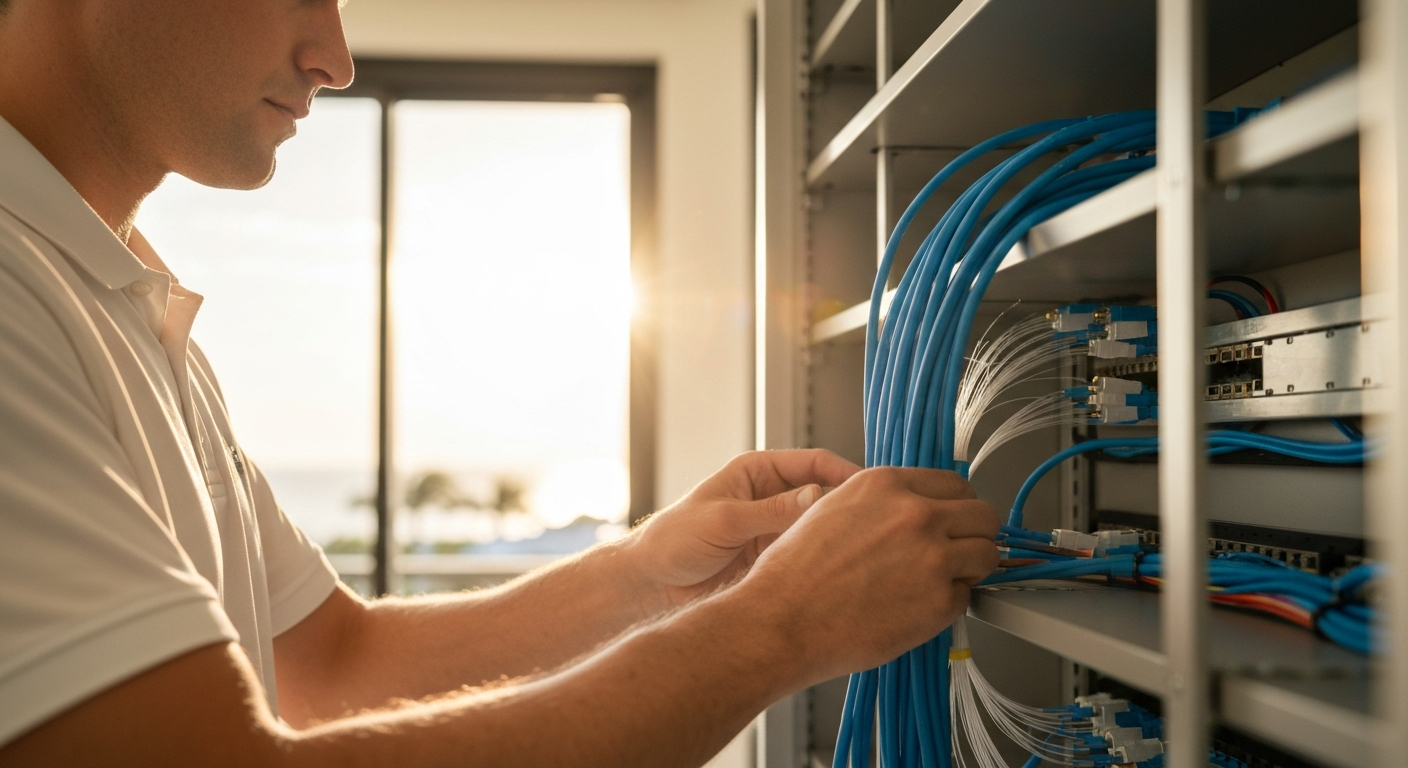
How to Get a Low Voltage Certification in Florida
But navigating the state’s licensing requirements can feel like deciphering a complex schematic. This guide provides the industry perspective you need, breaking down the pathway to becoming a licensed low voltage contractor and explaining why this specialization is one of the smartest career moves an electrician in the Sunshine State can make today.
What Exactly Is a “Low Voltage Certification” in Florida?
First, it’s essential to understand that Florida doesn’t offer a simple “certification” in the traditional sense. Instead, what you’re pursuing is a state-issued contractor’s license from the Florida Department of Business and Professional Regulation (DBPR). This license legally authorizes you to contract for, install, and service low voltage systems. For this type of work, the primary license is the Limited Energy Systems Specialty contractor license.
This license covers a wide range of systems operating at 98 volts or less, including:
- Data and structured cabling (including fiber optics)
- Home automation and smart home devices
- Satellite and communication systems
- Sound systems and home theaters
- Central vacuum systems
- Low voltage landscape lighting
It’s important to distinguish this from another set of specialty licenses, the Alarm System Contractor (I and II) licenses. While both deal with low voltage wiring, the alarm licenses are specifically for security and fire alarm systems. The Limited Energy license, however, is your ticket to the booming world of data, IoT, and integrated home technology. According to official state regulations, the scope of a Limited Energy license is primarily defined by the systems it covers, which are governed by specific sections of the National Electrical Code, including NEC Articles 725, 770, 800, and 810.
The Critical First Step: Choosing Between a Certified vs. Registered License
Before you even think about exams or applications, you must make a fundamental choice that will define the scope of your business. The Florida Electrical Contractors’ Licensing Board offers two distinct paths for every Florida electrical contractor: certified and registered.
Certified Specialty Contractor: This is the premier, statewide license. By passing the state exams, a certified contractor can work in any of the 67 counties in Florida, from the Panhandle to the Keys. It offers maximum flexibility and is the required credential for building a scalable, geographically diverse business. If your ambition is to become a leading master low voltage technician, this is the path for you.
Registered Specialty Contractor: This license restricts you to working only in the specific counties or municipalities where you have proven local competency (often by holding a local license or “competency card”). While it allows you to operate legally, it puts geographical limits on your business. You are essentially registering your local qualification with the state. This might be suitable for a professional focused on a single metropolitan area, but it lacks the growth potential of a certified license.
Your Roadmap to Becoming a Certified Low Voltage Contractor
Pursuing a statewide Certified Specialty Contractor license is a multi-step process that demonstrates your expertise and professionalism. Here’s what the journey looks like.
1. Document Your Experience
The DBPR requires you to prove you have the necessary hands-on skills to qualify for the Limited Energy Systems Specialty license. Per Florida Administrative Code, applicants must document their experience in one of the following ways:
- Have at least three years of management experience in the trade within the last six years, with at least one year of that experience being in a supervisory role.
- Have at least four years of experience as a foreman, supervisor, or contractor in the trade within the last eight years.
- Have at least six years of comprehensive training, technical education, or broad experience in the trade within the last 12 years.
- Be licensed as an electrical professional engineer for at least three years.
- Have any combination of these qualifications totaling six years of experience.
It’s crucial to note that “journeyman” is a local designation, not a state requirement, but experience gained in such a role can contribute to the overall experience needed for state certification.
2. Pass the State-Mandated Exams
This is the most challenging part of the process and requires dedicated low voltage exam prep. To earn your certified license, you must pass two separate computer-based exams:
- The Florida Business and Finance Exam: This test isn’t about wiring—it’s about running a business. It covers accounting, contracts, liability, and regulations. Every aspiring certified electrical contractor, regardless of specialty, must pass this exam.
- The Limited Energy Systems Specialty Trade Exam: This technical exam assesses your direct knowledge of low voltage systems, installation practices, and relevant code. Your study should focus heavily on the applicable sections of the NEC, such as those concerning cable selection and installation methods and even specialized environments like healthcare facilities.
3. Meet Financial and Insurance Requirements
As a licensed contractor, you are a business owner. The state requires you to prove your financial stability and responsibility. Applicants must provide credit reports and demonstrate a minimum net worth for their business. You will also need to secure general liability and property damage insurance before your license can be activated.
4. Submit Your Application
Once you have passed both exams and gathered all your documentation, you can formally apply for your DBPR electrical license. The application is submitted to the Electrical Contractors’ Licensing Board for final review and approval.
Keeping Your License Active: Continuing Education and Renewal
Once licensed, your professional development journey continues. Florida requires all certified and registered contractors to renew their licenses every two years. To do so, you must complete specific low voltage continuing education courses. Per Florida Statute 489.517, certified electrical contractors must complete 11 hours of board-approved courses covering topics such as:
- 7 hours of Technical Subjects (including 1 hour on the Advanced Florida Building Code).
- 1 hour of Workplace Safety.
- 1 hour of Workers’ Compensation.
- 1 hour of Business Practices.
- 1 hour of Florida Laws and Rules.
This electrical license renewal process ensures you stay current with code changes, safety protocols, and business best practices. Utilizing online electrical courses is a convenient and efficient way to meet these requirements without taking time off from the job.
The Opportunity is Now
The demand for skilled low voltage professionals in Florida is undeniable. The growth of IoT, fiber optic infrastructure, and smart home technology has created a robust market for technicians who can do more than just pull wire. By obtaining your Certified Limited Energy Systems Specialty license, you’re not just getting a piece of paper; you’re gaining the legal authority and professional credibility to build a thriving business in one of the most exciting sectors of the electrical industry.
Whether you’re looking to prepare for your exams or fulfill your continuing education requirements, having the right resources is critical. Explore our state-approved courses to take the next step in your professional journey. Now is the time to invest in your career and capitalize on Florida’s low voltage revolution. Ready to level up your skills? Browse our courses today.
Frequently Asked Questions
What is the difference between a low voltage license and an alarm contractor license in Florida?
A Limited Energy Systems Specialty license is for systems like data, audio/video, and home automation. An Alarm System Contractor license (Type I for all alarms, Type II for non-fire alarms) is specifically for security and fire alarm installation and monitoring. While both are low voltage, their scopes of work are legally distinct.
Does Florida offer electrical license reciprocity for low voltage work?
Florida’s electrical license reciprocity is very limited. The state has specific agreements with a few other states for certain license types, but it’s not a blanket acceptance. You should always verify your specific situation directly with the Florida Electrical Contractors’ Licensing Board before assuming your out-of-state license will transfer.
Is there a state-level master low voltage technician license in Florida?
No, Florida does not issue state-level “Journeyman” or “Master” electrician licenses of any kind. Those designations are handled at the local county or municipal level. The state licenses contractors—the professionals who can legally operate a business, pull permits, and employ other electricians.
Florida Continuing Education Courses
Explore our board-approved continuing education courses for Florida professionals:
View CE RequirementsFlorida 1 hour course on workers’ compensation
Florida 1 hour course on workplace safety
Florida 2 hours course on false alarm prevention
Florida 6 hours electrical CE course (Technical)
Florida 1 hour business practices course
Disclaimer: The information provided in this educational content has been prepared with care to reflect current regulatory requirements for continuing education. However, licensing rules and regulations can vary by state and are subject to change. While we strive for accuracy, ExpertCE cannot guarantee that all details are complete or up to date at the time of reading. For the most current and authoritative information, always refer directly to your state’s official licensing board or regulatory agency.

